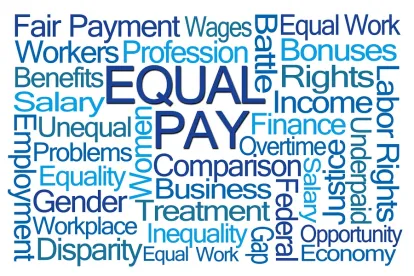As we come to the end of 2016, all employers should be planning ahead for any changes that will need to be implemented in 2017. For California employers, those changes may be extensive, as the California Legislature has been busy this year, passing several new laws that will impact California employees and their employers. Although there are a number of industry-specific employment laws that will impact some employers(e.g. agriculture, domestic workers, janitorial service workers, etc.), the following laws will apply to mostCalifornia employers. Below is a brief review of some key legislation that will go into effect in 2017. Make a resolution to be prepared now!
Minimum Wage Increase
As the battle over the minimum wage continues, California is not waiting. SB 3 increases California’s minimum wage each January 1 from 2017 through 2022 (or 2023 for employers with less than 26 employees). Come January 1, 2017, the new minimum wage will be $10.50. Remember, this means more than just raising the minimum wage – exempt employees in California must also earn no less than 2 times the state minimum wage for full-time employment (defined as 40 hours per week) to maintain their status as exempt. Therefore, employers must analyze exempt employees at or near the minimum salary cutoff. At $10.50, the new cutoff will be $43,680 (assuming the federal overtime rule does not pass scrutiny).
Equal Pay Act Expansion
California has long been a frontrunner when it comes to income equality. On January 1, 2017, two new laws (AB 1676 and SB 1063) will combine to expand the California Equal Pay Act to: eliminate prior salary as a bona fide exception to equal pay based on gender, and to preclude employers from paying employees of a different race or ethnicity different rates for substantially similar work.
Juvenile Court Information Prohibited in Interviews
AB 1843 prohibits employers from asking about or considering, for purposes of hiring or any condition of employment, any information about the employee/applicant’s arrests, convictions, or other proceedings involving juvenile court.
Notice of Sexual Assault/Domestic Violence Leave Rights
Employees must be notified at time of hire of their rights to take protected leave when victimized by domestic violence, sexual assault, or stalking. By July 1, 2017, AB 2337 will further require the California Labor Commissioner to develop a form employers may elect to use to comply with this notice requirement.
Arbitration Contracts
SB 1241 is a brainteaser, but the message is simple: employees that work and reside primarily in California cannot be required to adjudicate claims outside of California, or adjudicate claims using the law of another state even in California, as a condition of employment. This applies specifically to arbitration agreements, and any agreement entered into on or after January 1, 2017 must not contain any such provisions.
Tracking Hours Worked for Certain Exempt Employees
Under AB 2535, employers no longer will have to track hours worked by certain employees that are exempt from minimum wage and overtime regulations. Specifically, the bill adds a subjection (j), which identifies seven circumstances where exempt employee hours do not need to be tracked.
State Sponsored Retirement Savings Program
SB 1234, passed in 2012, goes into effect on January 1, 2017. Practically speaking, the imposition on employers should be minimal. The bill requires employers to either maintain a private, qualified retirement savings plan, or enable employees to make automatic contributions from their paycheck to a California Secure Choice Retirement Savings Program savings account. Employers may also be required to provide information about the program to employees.
Fair Employment and Housing Act Expansion
AB 488 expands FEHA’s reach to include employees hired under a special license, specifically those with physical or mental handicaps. The expansion provides corresponding affirmative defenses, and provides that it is not disability discrimination to pay less than the state minimum wage to disabled employees employed pursuant to California Labor Code sections 1191 or 1191.5.
Workplace Smoking Prohibitions
Although it took effect on June 9, 2016, it is important to remember that ABx2 6 has expanded smoking prohibitions in workplaces to expand the definition of “smoking” to include “the use of an electronic smoking device that creates an aerosol or vapor, in any manner or in any form, or the use of any oral smoking device for the purpose of circumventing the prohibition of smoking.” Employers should be certain that employees are aware of these changes. Owner-operated businesses are now covered by SBx2 6.
All-Gender Toilet Facilities
Effective March 1, 2017, AB 1732 will require that all single-user toilet facilities in any business establishment, place of public accommodation, or government agency, be identified as all-gender toilet facilities.



 />i
/>i

